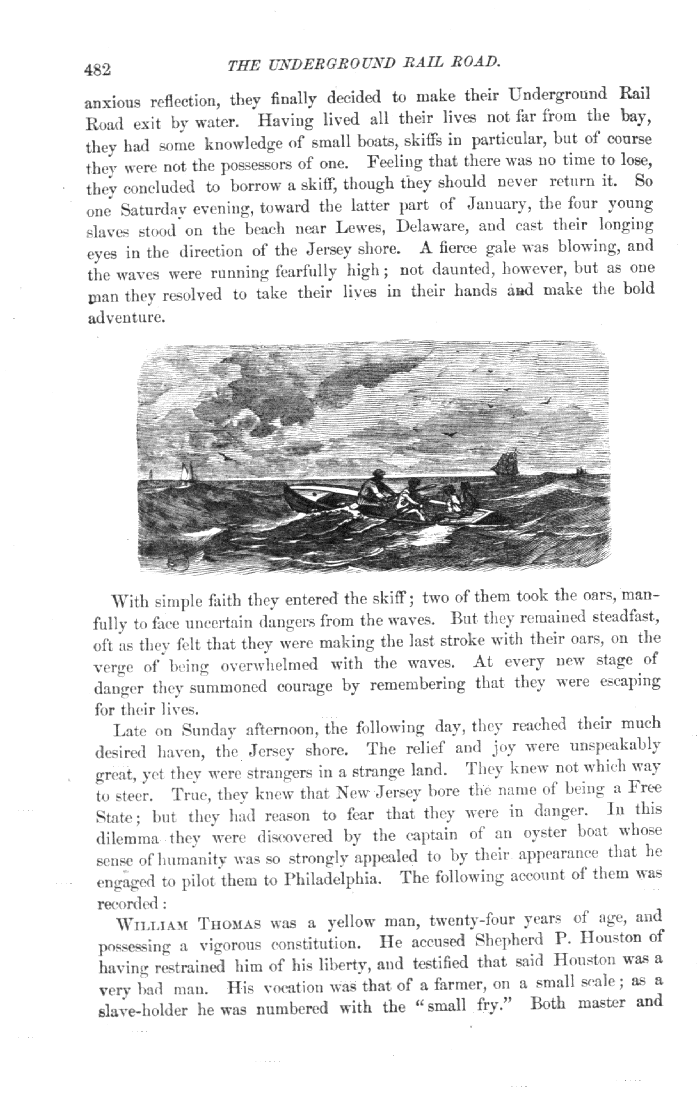 |
||||
 |
||||
| anxious reflection, they finally decided to make their Underground Rail Road exit by water. Having lived all their lives not far from the bay, they had some knowledge of small boats, skiffs in particular, but of course they were not the possessors of one. Feeling that there was no time to lose, they concluded to borrow a skiff, though they should never return it. So one Saturday evening, toward the latter part of January, the four young slaves stood on the beach near Lewes, Delaware, and cast their longing eyes in the direction of the Jersey shore. A fierce gale was blowing, and the waves were running fearfully high; not daunted, however, but as one pian they resolved to take their lives in their hands ağd make the bold adventure. With simple faith they entered the skiff; two of them took the oars, manfully to face uncertain dangers from the waves. But they remained steadfast, oft as they felt that they were making the last stroke with their oars, on the verge of being overwhelmed with the waves. At every new stage of danger they summoned courage by remembering that they were escaping for their lives. Late on Sunday afternoon, the following day, they reached their much desired haven, the Jersey shore. The relief and joy were unspeakably groat, yet they were strangers in a strange land. They knew not which way to steer. True, they knew that New Jersey bore the name of being a Free State; but they h;id reason to fear that they were in danger. In this dilemma they were discovered by the captain of an oyster boat whose souse of humanity was so strongly appealed to by their appearance that he engaged to pilot them to Philadelphia. The following account of them was recorded: WILLIAM THOMAS was a yellow man, twenty-four years of age, and possessing a vigorous constitution. He accused Shepherd P. Houston of having restrained him of his liberty, and testified that said Houston was a very bail man. His vocation was that of a farmer, on a small scale ; as a slave-holder he was numbered with the " small fry." Both master and |